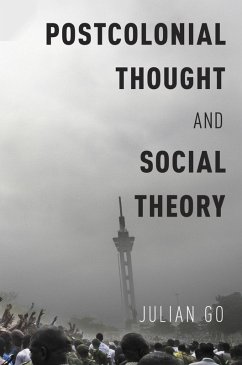Social scientists have long resisted the radical ideas known as postcolonial thought, while postcolonial scholars have critiqued the social sciences for their Euro-centric focus. However, in Postcolonial Thought and Social Theory, Julian Go attempts to reconcile the two seemingly contradictory fields by crafting a postcolonial social science. Contrary to claims that social science is incompatible with postcolonial thought, this book argues that the two are mutually beneficial, drawing upon the works of thinkers such as Franz Fanon, Amilcar Cabral, Edward Said, Homi Bhabha, and Gayatri Spivak. Go concludes with a call for a "third wave" of postcolonial thought emerging from social science and surmounting the narrow confines of disciplinary boundaries.
Dieser Download kann aus rechtlichen Gründen nur mit Rechnungsadresse in A, B, BG, CY, CZ, D, DK, EW, E, FIN, F, GR, HR, H, IRL, I, LT, L, LR, M, NL, PL, P, R, S, SLO, SK ausgeliefert werden.

